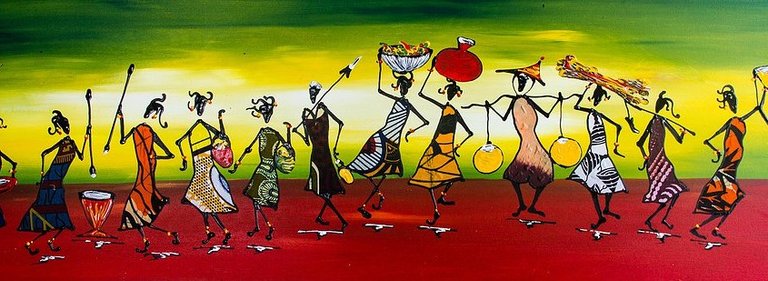African music has distinct characteristics, special instruments and ancient traditions. African music has been named and performed by African African musicians, excluding music influenced by clear foreign origins derived from the music of the Americas, Eastern Europe and Eastern music in some parts of Africa. It can be said that African music is the traditional music inherited by the continent of Africa, the transfer of hearing without interruption, and develops constantly whenever the players added new elements or dropped elements of the previous without out of the frameworks of the specific and accepted locally. African heritage is rich in musical elements. There is no single society in Africa that does not have its own music, which is complex music to some degree multi-rhythm, multi-tone and melodic. It is also popular music and African musicians can not understand the abstract principles of their music. However, the contribution of all members of African society without hesitation in any musical activity indicates the existence of unwritten common principles or a system that contributes to the enrichment of their musical heritage. Men may have their music and women have their music, and there are other religious, ritual or private colors. There are types of dance and singing, limited to events and celebrations. Music in the western part of the continent has a distinct place, in which there are many instruments, especially rhythmic instruments. The most important African music instruments are drums of various types and forms, and the African dowry used it to the utmost.

African music is African music living in a large field of 50 countries, each with its separate history, culture, language, and sub-Saharan Africa. Musical instruments are part of Zulu's multi-lingual culture. The bands use Zulu instruments of family and percussion. Each drummer uses special methods to produce drumming sounds, which are different from others. Iron bells are also a very popular musical instrument. Details of African Music

The rhythm of his intensity, - the repetition of the basic principles of music formation. To distinguish African music, the complex rhythms that occur concurrent perform different rhythmic decorations (meters and different beats.) Repeatedly repeats the same rhythmic patterns of minimum dynamics variations, at the end complements the sound of the rattles.The African rhythms are possible in the classroom.Each group has its own tempo, In each group of coaches, combine all groups to form composition (Figure left) Elements of African music are present in jazz, American spiritual black music, popular music from Brazil and the Caribbean American new and popular styles Special technique shakes the descendants of rocks.
Good stuff... Thank you.
Smiling when I see such texts. I liked it a lot, thank you
Nice share my friend.
My comment same like in biography of pablo.
Upvoted your blog